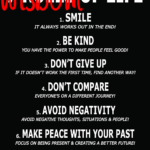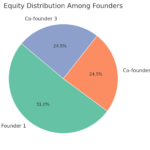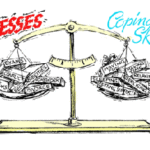
In 1985, management scholar Manfred Kets de Vries wrote in Harvard Business Review, “Entrepreneurs seem to be achievement oriented, like to take responsibility for decisions, and dislike repetitive, routine work. Creative entrepreneurs possess high levels of energy and great degrees of perseverance and imagination, which, combined with willingness to take moderate, calculated risks enable them to transform what often began as a very simple, ill-defined idea into something concrete. Entrepreneurs also can instill highly contagious enthusiasm in an organization. They convey a sense of purpose and, by doing so, convince others that they are where the action is.”
What an infectious and exciting observation. Almost 35 years later, our exuberance for entrepreneurship has reached pop culture status and thankfully, our attention has increasingly shifted from the important role entrepreneurs play in our economy, to the toll it takes on such people.
“Along with their mystique, however, entrepreneurs can have personality quirks that make them hard people to work with,” continued de Vries. “For example, their bias toward action, which makes them act rather thoughtlessly, sometimes can have dire consequences for the organization. Moreover, some entrepreneurs I have known have had great difficulty taking direction.”
de Vries asked, “Do entrepreneurs have more personal problems than other people?”
Since that time, published have been a few fantastic studies and articles that give us insight to the fact that we’re tackling the burdens of entrepreneurship.
- Entrepreneurs’ Mental Health and Well-Being: A Review and Research Agenda
- Jake Chapman’s Investors and entrepreneurs need to address the mental health crisis in startups – TechCrunch
- Health of Entrepreneurs vs. Employees in a National Representative Sample
- 7 Reasons Entrepreneurs Are Particularly Vulnerable to Mental Health Challenges
- There is a mental health crisis in entrepreneurship. Here’s how to tackle it
Article Highlights
The recurring theme? Mental Health.
How much do you earn as a entrepreneur?
Think about it a minute. The question comes up with surprising frequency; affirming that people are exploring being an entrepreneur, perhaps out of necessity as much as desire. But is the word “entrepreneur” a job title? How much do you earn as an entrepreneur?
Zip. Zilch. Nada.
Entrepreneurs don’t get paid.
Entrepreneur isn’t a job title. It’s not a job. It’s not a role.
Entrepreneur is more of a personality trait, distinguishing the type of person who is fixated on investing themselves to improve things.
Take, for example, Elon Musk and Mark Zuckerberg… how would you simply clarify how they operate differently? Zuckerberg, clearly a founder, business owner, and executive. Successful. Musk, the same for PayPal, and Tesla, and SpaceX, and…
Musk is more entrepreneurial.
Edison and Telsa would be another great example of the distinction. Tesla the incredible inventor while Edison was the entrepreneur.
And with that distinction aside, “entrepreneurs” get paid whatever their job pays them.
Why doesn’t everyone become an entrepreneur?
It seems an ideal under the circumstances doesn’t it? We all work for ourselves and in a job. Where then is our focus and priority? Is it even sustainable.
Frankly, encouraging it would be economically and societally devastating.
Only about 5% of the entire population could be sustained as entrepreneurs.
Investing their personal wealth and health in addressing major gaps and problems in the market, this subset of our economy is loses a lot of money.
The entrepreneur is the personality trait of some of those professionals, who can’t help but put it all on the line to disrupt or fix something otherwise considered too risky or impossible.
No one can take the risk of being an entrepreneur without companies, investors, and employees who help them. Most people need to be business owners, service providers, and employees; the work needs to be done. Thankfully, few risk everything to attempt to change something… if most did otherwise, our economies would collapse.
Still, so many are determined to try…
The Mental Health Burden of Entrepreneurship
Opposition, confusion, and doubt. Depression.
Entrepreneur defines the type of person who can’t help but address problems/gaps in work. In whatever context that means, that’s not necessarily a business owner or founder, it just refers to that personality that is fixated on fixing things.
i.e. Elon Musk would define Entrepreneur whereas a Zuckerberg, not so much. Hopefully that makes the distinction clear.
As such, two distinct ways to think about those challenges:
- Such people are working on things that are disruptive, unfamiliar, or seemingly impossible.
- Given that, they’ll fail, a lot, and people will question why they’re bothering.
Therefore:
- Opposition, confusion, and doubt
- And, mental health challenges such as depression
Yay! The Dark Side of Being an Entrepreneur
That means isolation, celebration of success in an aspect of the economy that fails (entirely) 90% of the time, and being opposed constantly.
That takes a toll that is only more recently being explored in depth. That takes a toll that is obfuscated by Media and culture/societal fixation with how “great it is to be an entrepreneur!”
Overwhelmingly, most entrepreneurial people struggle. They struggle financially, because they don’t fit well in conventional jobs. They struggle financially because they invest themselves and their time in endeavors likely to fail.
Even being capable of taking on that financial burden, constant failure and opposition takes a toll on everyone.
The bright side
There are brilliant efforts underway with a focus on this mental health crisis in work.
Efforts such as what Eddie González-Novoa, Brian Lang, and we, in MediaTech Ventures, are doing throughout SXSW to explore health issues in entrepreneurship; what Bill Evans and team are doing in Rock Health; the soaring investment in mental healthcare, or what Edouard Gaussen has put together to map out the Mental Health startup ecosystem. Heather Landi, senior Editor in Health IT, noted in August that mental health and wellness companies raised $321 million across 26 deals, in the second quarter of 2019, from top top investors Centene, Google Ventures, Oak HC/FT, Norwest Venture Partners, and Y Combinator are flocking towards mental and behavioral health.
Reach out and get involved here.
Make no mistake given the hype and exuberance for “entrepreneurship,” it is not the laughs and success that we see in magazines and on TV.
Media celebrates the success or briefly highlights the massive fallouts. As a result, it LOOKS rosy, the reality is never really understood by anyone except those actually living it. And that reality is painful even under the best of circumstances.
de Vries noted it long ago, “Whatever executives or venture capitalists finally decide to do, they should keep in mind that entrepreneurs’ personality quirks may have been responsible for their drive and energy and are important factors in making them so successful. Thus instead of fighting these idiosyncracies, managers should regard developing them as a challenge,” and on the job, in work, that’s as important as ever. Today, look to what we can do to keep such people healthy while they undertake the pain of serving us all.








Great read and had to share, Thanks Paul O’Brien! Food for thought : Only about 5% of the entire population could be sustained as entrepreneurs.
Thank you Victoria Moreno! That 5% notion, I wanted to flesh it out more but the article was already long and focus important.
I’ve seen the idea floated quite frequently, that we just can’t have any more than a few percentage being entrepreneurs, but it gets bogged down in disagreement about what the word means. I’ve seen a couple of economist point out that it really can’t even be more than 1%, and that that’s reflected in why so few startups ever get funding (roughly 1%). Seems a pragmatic and healthy discussion; at the very least, in the sense that if everyone is working for themselves and taking great risks, who is going to do the work of supporting them??
Count Eddie and me in – also we are working with Centene this year at SXSW, so by proxy I suspect they are up to build a better behavioral “culture of health” too. The new and amazing Executive Commissioner for Texas HHS also announced a new blueprint for change last month that we are supporting in our work at SXSW for http://energizing.health Behavioral health is at the top of the list. See https://hhs.texas.gov/about-hhs/2020-inaugural-business-plan
This is awesome Texas Health and Human Services Commission
“HHS is implementing direction from the 86th Texas Legislature to expand access to behavioral health services. This includes expending additional funds to enhance inpatient and outpatient mental health capacity and enhance data tracking of people interacting with behavioral health and law enforcement systems. We are also implementing Senate Bill 633, which assists local mental health authorities (LMHAs) in providing access to mental health services in rural areas. Additionally, to help support the mental health needs of students, House Bill 18 calls for public school employee training on Mental Health First Aid, counseling and educational programs.”
(cc Arlo Burgos check it out)
Much needed .. #entrepreneurlife
One of those issues in which I wish I could find more tangible and accessible solutions.
You know what else is cool Paull, the commissioner is totally an innovator and wants best practices from entrepreneurs and problem solvers. She’s trying new approaches and has an enthusiasm around culture change and health equity that is real and applicable this year. She’s been generous with her time with us at Energizing Health, and follows up on new ideas.
After accidentally becoming an entrepreneur, and after reading Drucker (Innovation and Entrepreneurship), I read David McClelland’s motivation theory and the concept of “need to achieve.”
Great topic. Having a support system when having your own company is critical. It’s all about how you minimize the downs. I know I have been through a lot but it just makes me appreciate the little things more. It’s all about maintaining a balance of health and work.
Great share man! Thank you.
I’m sharing this with a huge group tonight bro! I can relate to the impact of this the last 5 years…. and the only way I know this is who I truly am is the innate desire and drive to keep going and try again! Appreciate you Paul. Always have. You’re a good man.
Thank you!! What group my friend? Let me help share in the discussion.
Paul O’Brien it’s a founder group on LinkedIn. Hosting a live discussion with them tonight….. I’ll get you connected man! Plus I’m going to an founders round table tomorrow tomorrow in downtown LA!
I read a great summary of the research and subjective stories about the issue… What’s the solution?
Talking is half the battle
Michael Robison would like to know more about this group.
Christi Hester if I was still in TX that would be amazing. I am splitting my time between my homes in LA, Nashville and NY ….. haven’t even had the chance to be in TX in over a year.
Michael Robison sounds awesome though. Is it a Linked In Group?
I think that’s what someone says who hasn’t experienced the debilitating effects of depression and anxiety. Talking isn’t half the battle. Not even close. Talking is step one. And if you talk to the wrong person, you never make it to step two
Okay, I’ll offer a different and more provocative solution… being able to overcome criticism from people unfamiliar with circumstances 😉
I think that understanding the mental burden of entrepreneurship could include a deeper understanding of the motivations of entrepreneurship. Even though it is decades old, some of the work of David McClelland in the area of motivation (I used to focus on the entrepreneurial “need to achieve”)…(edit) and his discussion of the “need to achieve” (n-ach) does represent an element of the stress experienced.
Does that mean expansion of mental health benefits under Medicaid and CHIP (Centene)?
Thank you for giving this issue a voice #YouAreNotAlone
I’ve known and worked for a lot of entrepreneurs. One thing I notice about those that are best able to weather the inevitable storms in the territory is self-care, most often exercise. I know one who’s played pick up basketball every day since starting his business in 1982. Another goes to a barre class religiously. For another, it’s a movie on their own from time to time, or a regular massage or mani / pedi.
What a terrific portrayal of behind the mind of an entrepreneur. I know. I’ve struggled with all those issues named in this article. And yet. She persisted!
Anxiety and not being certain is the major issue which causes stress in entrepreneurship. You have to take risk and move forward nothing is certain what you can do is to take calculative risks and avoid as many extra costs as possible.
Cameron Herold writes about the emotional cycle of an entrepreneur. Worth a read.
Thank you for sharing Paul O’Brien!! So real
Brilliant! Thank you for this Sanjay Nasta. I was digging and digging for hours trying to find some people really focused on this, and couldn’t get much further than the handful of articles. Cameron Herold, thank you! https://www.cameronherold.com/uncategorized/employee-wellness-issues/?fbclid=IwAR2MbiFcVsjPd9lMChJADK6TfRjRTVjuxjcvnNtOvEK1bIZH5YZa0Jx0Zis
A really great look inside the mind of an entrepreneur from startup whisperer
(Hint: It ain’t for the faint of heart…)
This NEEDS to be talked about much more.
People need to understand that entrepreneurialism isn’t all sunshine, roses, bikini models and Ferraris.
Help spread the awareness. Talk about it openly.
Paul O’Brien you shared this some time ago & I saved it to read it when I had some time. Thanks for sharing. The emotional roller coaster that comes with entrepreneurship can be exhilarating & depressing, from day to day.
Most don’t realize the stress that comes with entrepreneurship. The constant battles for work-life balance, significantly compounded if you have a family. It’s like being in the military, your whole family has to make sacrifices.
Thank you Nigel LeBlanc! I know Neil Patwardhan has some plans to explore this all more, soon, and I’d like to get back to it, as soon as we can all get through SXSW
100%. Nigel LeBlanc we are hosting a small founders panel around this at SXSW. Feel free to sign up here! https://www.eventbrite.com/e/the-founders-survival-guide-registration-95172374133